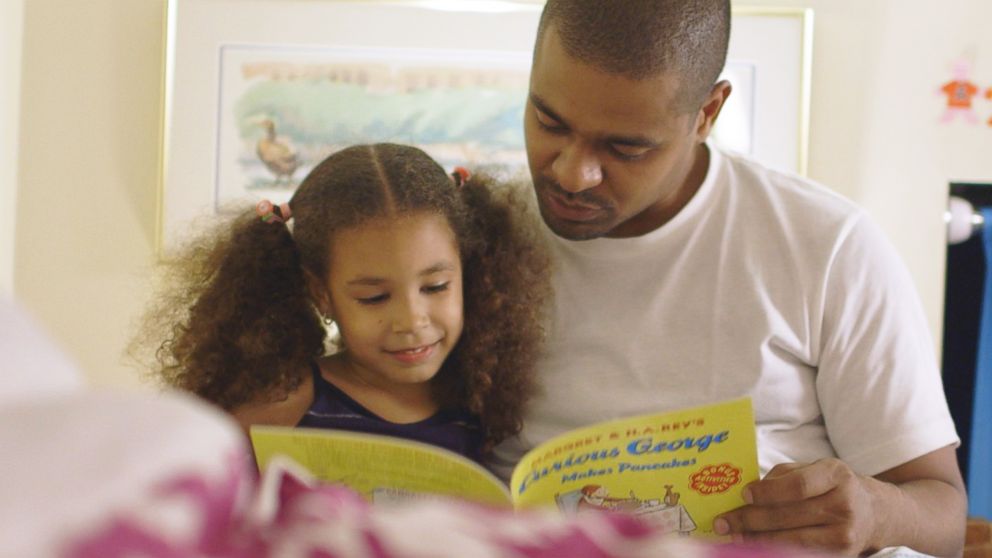Five Essential Books on Being a Father

June 9, 2014— -- Most Father’s Day presents are meant to divert and amuse. A book about fatherhood can divert, amuse AND teach you how to be a better father (or at least learn from the mistakes of others).
The list of essential books for dads is constantly evolving. “To Kill A Mockingbird” still makes regular appearances on such lists because of the enduring appeal of superdad Atticus Finch. But 21st century fatherhood has its own rhythms, lessons and comedic moments that the writers below expertly capture.
Someone Could Get Hurt by Drew Magary
Anyone familiar with Magary’s hilariously profane rants about sports and parenthood on the sports site Deadspin will recognize the voice in this parenting memoir.
It’s not that there’s anything exceptional about Magary’s family life – he’s just your average suburban dad. But he gets maximum mileage from the foibles of parenthood, from swearing children to the constant feelings of inadequacy that bedevil modern fathers. A sample: “There are scores of books being sold every day that demonstrate how much better parents are in China, and in France, and in the Amazon River Basin. I keep waiting for a New York Times article about how leaders of the Cali drug cartel excel at teaching their children self-reliance.”
But it’s ultimately his passages on the terrors of having a gravely sick child that make this a must-read for dads.
Raising Cain by Michael Thompson Ph.D. and Dan Kindlon
Why do we still believe, as the old nursery rhyme goes, that boys are made of “snakes and snails and puppy dog tails?” Psychologists Dan Kindlon and Michael Thompson write that myths about boyhood – that stoicism and macho strength are cool – have created a nation of boys who are afraid to speak about their emotional lives.
The authors offer a program to teach boys “emotional literacy” that can help them speak about their feelings and counter the emotional miseducation they receive.This 1999 book remains a must-read for fathers of sons.
Home Game by Michael Lewis
Best known for his dissections of the hypermasculine worlds of pro sports and Wall Street, Michael Lewis’ takes on his own feelings in this paean to fatherhood.
Lewis starts from the (scientifically shaky) position that motherhood is “instinctive” but “fatherhood is learned behavior.” He then details how he learns to love each of his three children, whose lives give structure to the book.
Sure, Lewis’s gruff quips – “Memory loss is the key to human reproduction” – may be a throwback to a time when dads were a little less sensitive. But they also give readers an honest exploration of what it means to be an adult.
The Boy in the Moon by Ian Brown
Many authors seek the universal truths of fatherhood, but Ian Brown recognizes that his experiences with his disabled son, Walker, are truly unique.
Brown recounts the exhaustion and unexpected joys of raising Walker, who was born with cardiofaciocutaneous syndrome, an extremely rare genetic mutation that causes severe developmental and physical disabilities and leaves him unable to speak.
Brown asks: What are we to make of someone like Walker? He can’t and never will be able to take care of himself or even communicate his needs. “But if Walker is so insubstantial,” Brown writes, “why does he feel so important? What is he trying to show me?” His attempts to answer the question are a deep meditation on parenthood.
How To Talk So Kids Will Listen & Listen So Kids Will Talk by Adele Faber and Elaine Mazlish
A classic. “How to Talk…” begins with a statement that will feel familiar to almost every dad: “I was a wonderful parent before I had children.” It then exhaustively lists the exhausting arguments that many parents have almost every day with their kids.
There is a better way, the authors tell us. Enlist your children to cooperate, find alternatives to punishment, encourage independence and praise them.
It can all feel a bit… overly optimistic. Even with suggested dialogue, it’s hard to get your children to do what you want. But Faber and Mazlish, like the best stand-up comics, remind us that parents everywhere are also experiencing the dark moments we encounter with our children – the very moments that feel so personal and unique.




